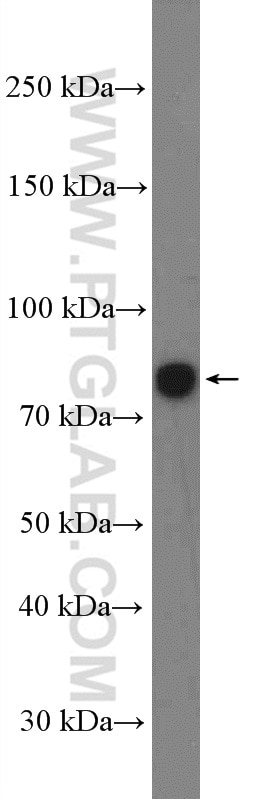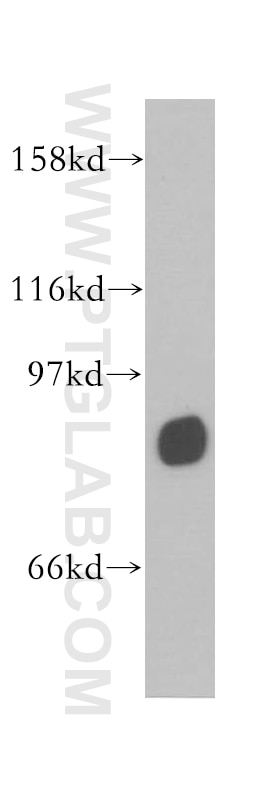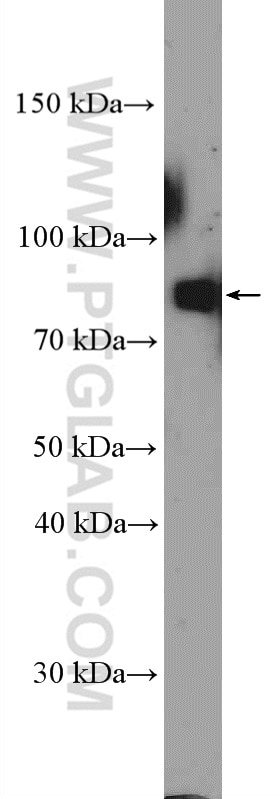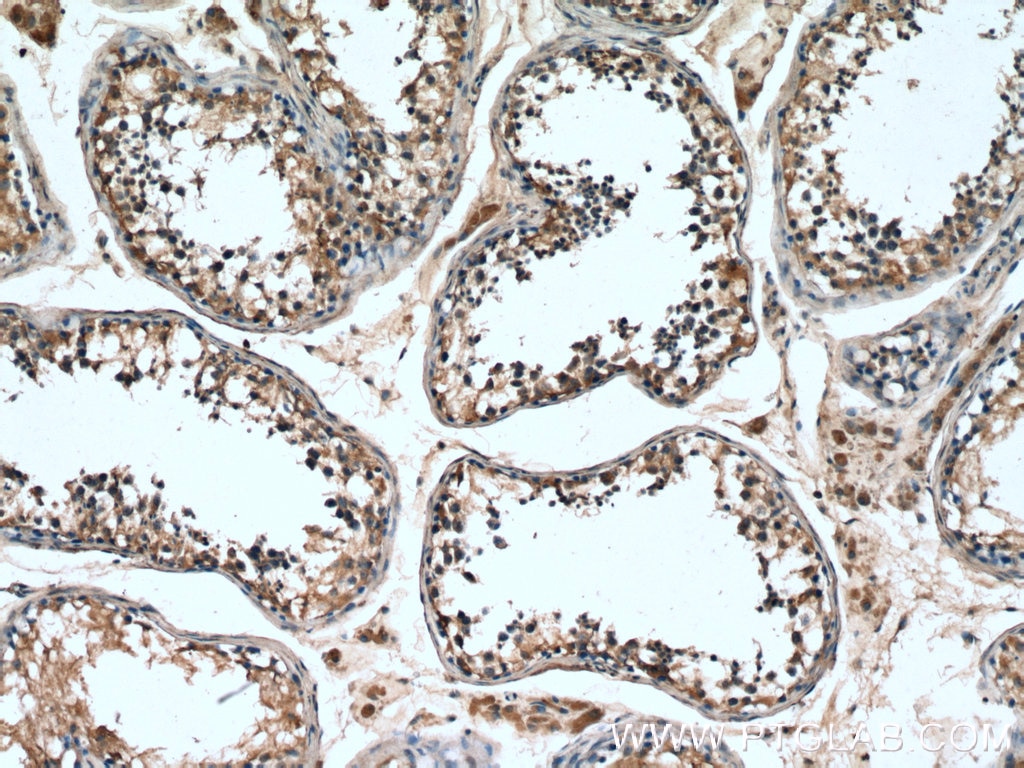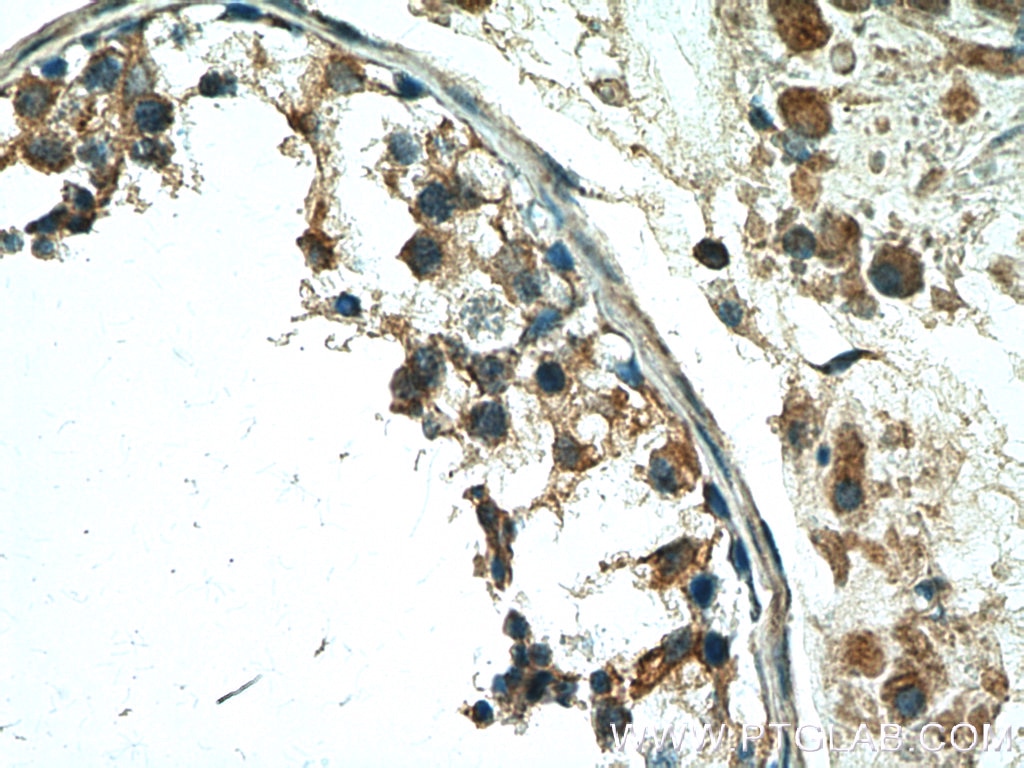TSGA10 Polyklonaler Antikörper
TSGA10 Polyklonal Antikörper für WB, IHC, ELISA
Wirt / Isotyp
Kaninchen / IgG
Getestete Reaktivität
human, Maus, Ratte
Anwendung
WB, IF, IHC, ELISA
Konjugation
Unkonjugiert
Kat-Nr. : 12593-1-AP
Synonyme
Geprüfte Anwendungen
| Erfolgreiche Detektion in WB | Rattenhodengewebe, Maushodengewebe |
| Erfolgreiche Detektion in IHC | humanes Hodengewebe Hinweis: Antigendemaskierung mit TE-Puffer pH 9,0 empfohlen. (*) Wahlweise kann die Antigendemaskierung auch mit Citratpuffer pH 6,0 erfolgen. |
Empfohlene Verdünnung
| Anwendung | Verdünnung |
|---|---|
| Western Blot (WB) | WB : 1:1000-1:6000 |
| Immunhistochemie (IHC) | IHC : 1:50-1:500 |
| It is recommended that this reagent should be titrated in each testing system to obtain optimal results. | |
| Sample-dependent, check data in validation data gallery | |
Veröffentlichte Anwendungen
| WB | See 6 publications below |
| IHC | See 2 publications below |
| IF | See 3 publications below |
Produktinformation
12593-1-AP bindet in WB, IF, IHC, ELISA TSGA10 und zeigt Reaktivität mit human, Maus, Ratten
| Getestete Reaktivität | human, Maus, Ratte |
| In Publikationen genannte Reaktivität | human, Maus |
| Wirt / Isotyp | Kaninchen / IgG |
| Klonalität | Polyklonal |
| Typ | Antikörper |
| Immunogen | TSGA10 fusion protein Ag3311 |
| Vollständiger Name | testis specific, 10 |
| Berechnetes Molekulargewicht | 698 aa, 81 kDa |
| Beobachtetes Molekulargewicht | 81 kDa |
| GenBank-Zugangsnummer | BC028366 |
| Gene symbol | TSGA10 |
| Gene ID (NCBI) | 80705 |
| Konjugation | Unkonjugiert |
| Form | Liquid |
| Reinigungsmethode | Antigen-Affinitätsreinigung |
| Lagerungspuffer | PBS with 0.02% sodium azide and 50% glycerol |
| Lagerungsbedingungen | Bei -20°C lagern. Nach dem Versand ein Jahr lang stabil Aliquotieren ist bei -20oC Lagerung nicht notwendig. 20ul Größen enthalten 0,1% BSA. |
Protokolle
| PRODUKTSPEZIFISCHE PROTOKOLLE | |
|---|---|
| WB protocol for TSGA10 antibody 12593-1-AP | Protokoll herunterladen |
| IHC protocol for TSGA10 antibody 12593-1-AP | Protokoll herunterladenl |
| STANDARD-PROTOKOLLE | |
|---|---|
| Klicken Sie hier, um unsere Standardprotokolle anzuzeigen |
Publikationen
| Species | Application | Title |
|---|---|---|
J Assist Reprod Genet Pathogenesis of acephalic spermatozoa syndrome caused by splicing mutation and de novo deletion in TSGA10. | ||
Basic Clin Androl A novel homozygous TSGA10 missense variant causes acephalic spermatozoa syndrome in a Pakistani family |
